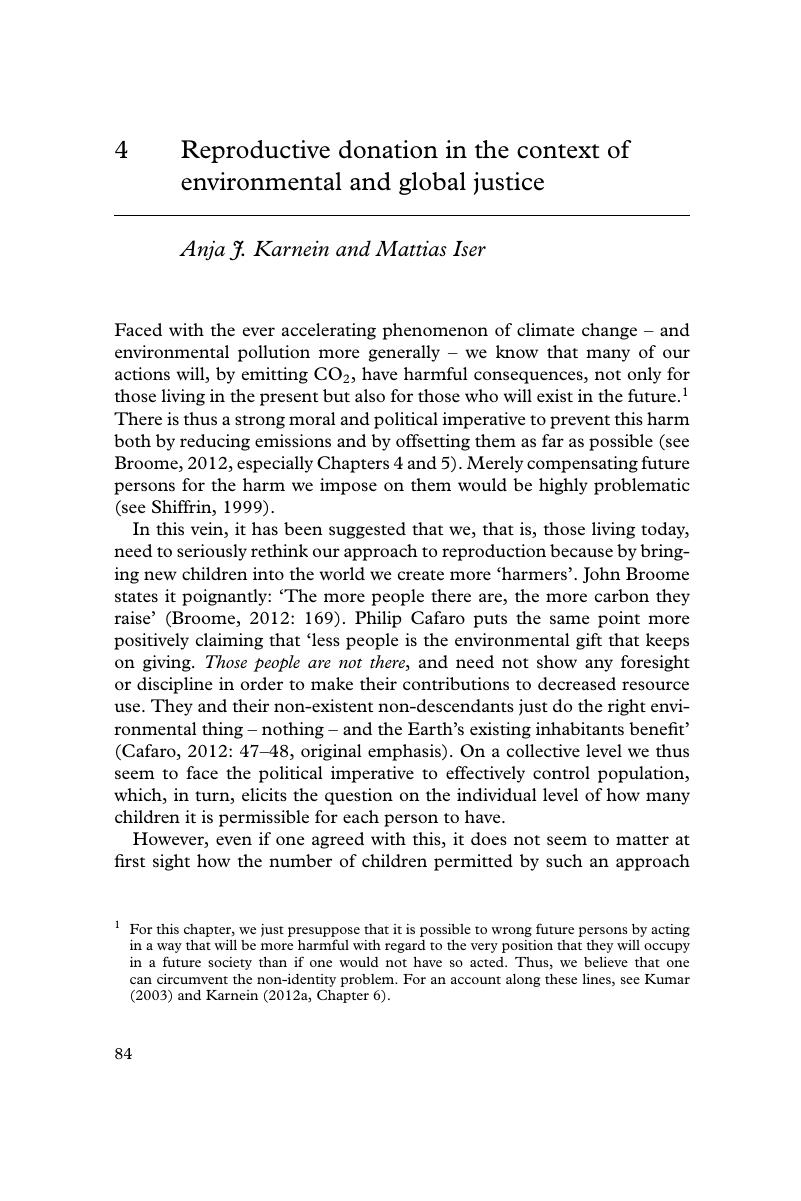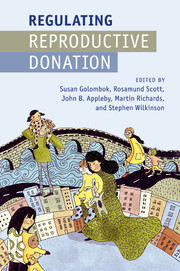Book contents
- Regulating Reproductive Donation
- Regulating Reproductive Donation
- Copyright page
- Contents
- Editors, contributors and discussants
- Book part
- Introduction
- 1 The development of governance and regulation of donor conception in the UK
- Part I International, cross-border and global issues
- 2 International regulation and cross-country comparisons
- 3 Legal regulation of family creation through gamete donation
- 4 Reproductive donation in the context of environmental and global justice
- 5 Normative and regulatory issues in cross-border reproductive health care
- 6 Surrogacy
- 7 A better legal framework for United Kingdom surrogacy?
- Part II How many children per donor?
- Part III Donors
- Part IV Information about donors
- Index
- References
4 - Reproductive donation in the context of environmental and global justice
from Part I - International, cross-border and global issues
Published online by Cambridge University Press: 05 March 2016
- Regulating Reproductive Donation
- Regulating Reproductive Donation
- Copyright page
- Contents
- Editors, contributors and discussants
- Book part
- Introduction
- 1 The development of governance and regulation of donor conception in the UK
- Part I International, cross-border and global issues
- 2 International regulation and cross-country comparisons
- 3 Legal regulation of family creation through gamete donation
- 4 Reproductive donation in the context of environmental and global justice
- 5 Normative and regulatory issues in cross-border reproductive health care
- 6 Surrogacy
- 7 A better legal framework for United Kingdom surrogacy?
- Part II How many children per donor?
- Part III Donors
- Part IV Information about donors
- Index
- References
Summary

- Type
- Chapter
- Information
- Regulating Reproductive Donation , pp. 84 - 104Publisher: Cambridge University PressPrint publication year: 2016
References
- 1
- Cited by



